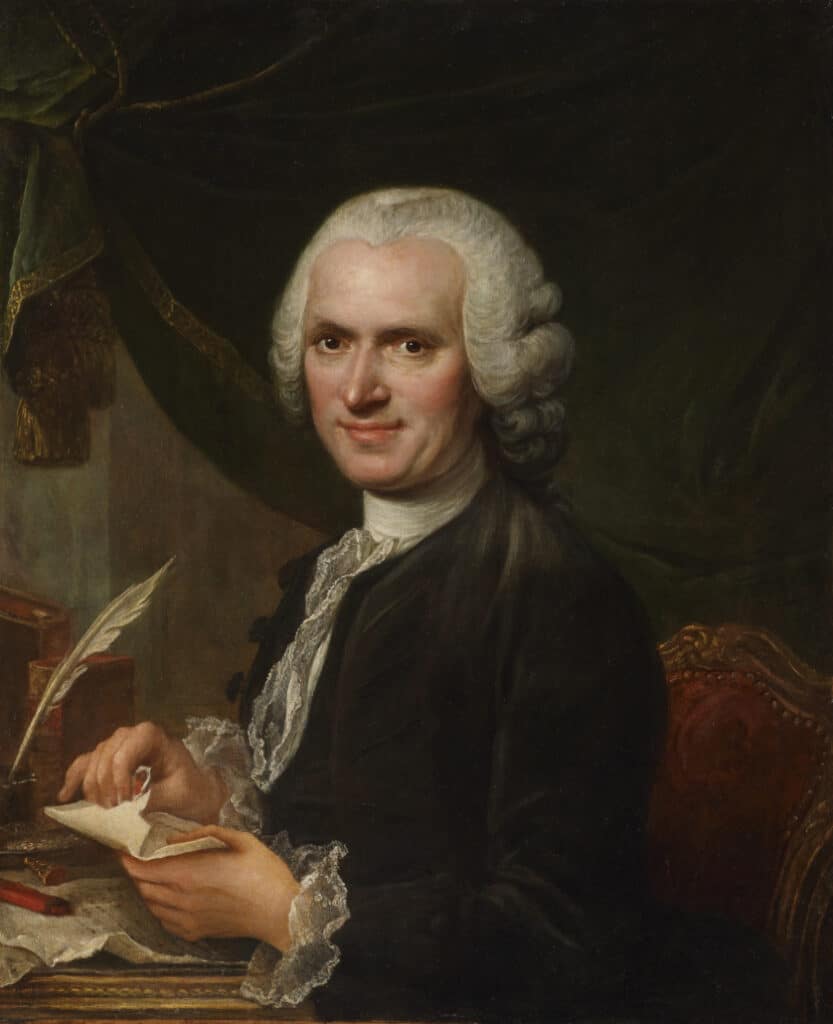
John T. Scott writes .....
Rousseau is best known as the author of philosophic works, but he was a musician and musical theorist before he burst onto the European literary scene with his First Discourse. While he earned celebrity as an anti-philosophical philosopher, he continued to consider music as his primary vocation and avocation throughout his life. Rousseau testifies to the harmony between his musical work and his philosophy in his Dialogues, where he explains that his musical writings and compositions are animated by the same feelings and ideas as all of his works -- that they too are based on the principle of his "system" that "man is good although men are wicked." His mature musical theory not only incorporates his philosophy of human nature and development but also extends it through an examination of the role of the passions in human communication. Rousseau's musical theory is an important, yet often overlooked, facet of his philosophy.
The relationship between Rousseau's musical theory and his philosophy as a whole has seldom been extensively analyzed. His only widely known writing relating to music is the Essay on the Origin of Languages, but even that work has in general not received a full accounting because it has rarely been interpreted in light of his other musical writings. The Essay emerged out of both the Second Discourse and the contemporaneous musical polemics of the mid-1750s. The simultaneous elaboration of his "system" and his continued work on music was the context in which Rousseau's mature musical theory developed. After an account of Rousseau's pre-systematic musical writings and a discussion of the development of his musical theory, I will turn to an examination of the Essay. Finally, I will conclude by discussing Rousseau's novel aesthetic theory and its impact.
Continue reading HERE






